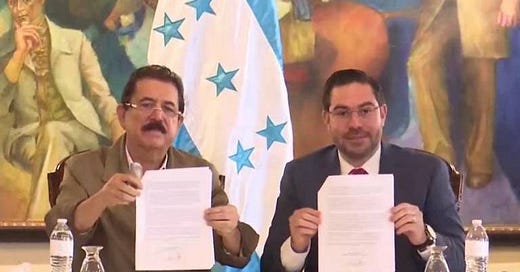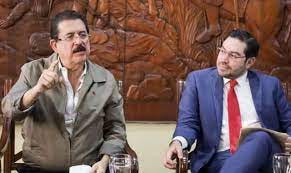The Honduran daily newspaper Tiempo reported on February 7 that an agreement had been reached between Manuel Zelaya, Coordinator of the Freedom and Refoundation Party (Libre for its initials in Spanish), and Jorge Cálix, a Libre congressional deputy who was president of one of the two governing boards of the National Congress. The agreement resolved the political crisis that had broken out in the days immediately prior to the inauguration of newly elected president Xiomara Castro, and that threatened to undermine her administration’s comprehensive program of refoundation and reform. Manuel Zelaya is the former president of Honduras, deposed by a parliamentary-military coup d’etat in 2009, and the husband of the new president.
The agreement stipulates that Cálix will renounce his claim to the presidency of the National Congress, and that the seventeen dissident deputies of Libre who had backed Cálix will support …



